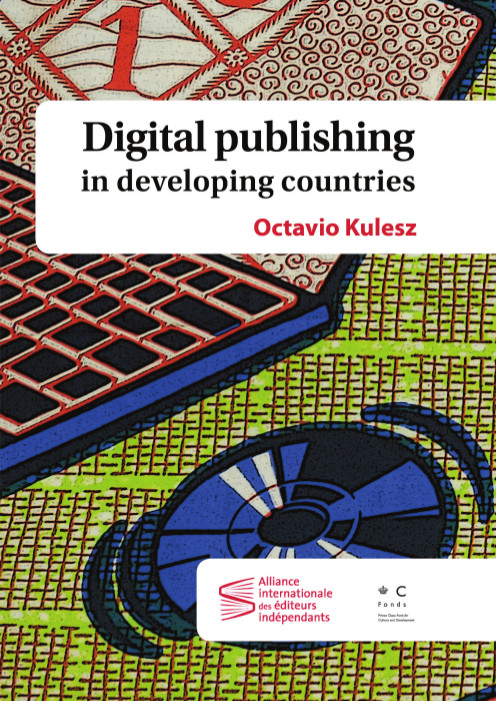James M. Harding, John Rouse (eds.): Not the Other Avant-Garde: The Transnational Foundations of Avant-Garde Performance (2006)
Filed under book | Tags: · africa, argentina, art history, avant-garde, fluxus, india, japan, mexico, middle east, music history, performance, performance art, theatre

“Almost without exception, studies of the avant-garde take for granted the premise that the influential experimental practices associated with the avant-garde began primarily as a European phenomenon that in turn spread around the world. These ten original essays, especially commissioned for Not the Other Avant-Garde, forge a radically new conception of the avant-garde by demonstrating the many ways in which the first—and second—wave avant-gardes were always already a transnational phenomenon, an amalgam of often contradictory performance traditions and practices developed in various cultural locations around the world, including Africa, the Middle East, Mexico, Argentina, India, and Japan. Essays from leading scholars and critics—including Marvin Carlson, Sudipto Chatterjee, John Conteh-Morgan, Peter Eckersall, Harry J. Elam Jr., Joachim Fiebach, David G. Goodman, Jean Graham-Jones, Hannah Higgins, and Adam Versényi—suggest collectively that the very concept of the avant-garde is possible only if conceptualized beyond the limitations of Eurocentric paradigms.
Not the Other Avant-Garde is groundbreaking in both avant-garde studies and performance studies and will be a valuable contribution to the fields of theater studies, modernist studies, art history, literature, and music history.”
Publisher University of Michigan Press, 2006
Theater: Theory/Text/Performance series
ISBN 0472069314, 9780472099313
312 pages
PDF (updated on 2017-7-11)
Comment (0)Dana Diminescu (ed.): Social Science Information journal, Special issue: Diasporas on the Web (2012)
Filed under journal | Tags: · colonialism, diaspora, egypt, france, india, internet, lebanon, macedonia, nepal, palestine, tamil, tunisia, virtual communities, web, yugoslavia

“One of the major changes affecting diasporas the world over since the 1980s has been the increasing number of communities scattered throughout physical space, along with new forms of presence, regrouping, interaction and mobilization within digital territories.
This change calls for a renewal in epistemological approaches. The topics under study, as well as the conceptual and methodological tools used to analyse them, need to be reconsidered in the face of this evolution of diasporas. The articles published in this issue of SSI1 bear witness to such an effort: researchers and engineers involved in the e-Diasporas Atlas project have sought to find the most appropriate concepts, tools and methods to explore the Web of diasporas, based on a number of case studies. This work represents a vast new area of investigation, which is still under way.
In this introduction, we examine the different conceptual tools used during the research, analyse their relevance for the different diasporic communities on the Web and present the methodological chain developed within the e-Diasporas Atlas project as well as the most important findings.” (from the Introduction)
With contributions by Dana Diminescu, Anat Ben-David, Yann Scioldo-Zürcher, Houda Asal, Marta Severo and Eleonora Zuolo, Teresa Graziano, Ingrid Therwath, Priya Kumar, Tristan Bruslé, Kristina Balalovska, Francesco Mazzucchelli
Social Science Information, December 2012; 51 (4)
Publisher: SAGE, on behalf of Maison des Sciences de l’Homme, Paris
ISSN 0539-0184
245 pages
via ach
e-Diasporas Atlas project page (includes working papers and interactive graph)
Comment (0)Octavio Kulesz: Digital Publishing in Developing Countries (2011) [English/French/Spanish]
Filed under report | Tags: · africa, china, e-book, india, latin america, middle east, publishing, russia

E-books, print on demand, online sales sites, the boom in mobile phones… new technologies are profoundly transforming the way texts circulate. Developing countries, however, which face serious limitations in infrastructure, have a considerable challenge ahead of them.
What new actors are emerging in the countries of the South, outside of the powerful platforms already existing in the US, Europe and Japan? Is it conceivable that there may be an autonomous evolution of digital publications in developing countries, entirely independent of the richest nations? What support policies could be implemented to promote the growth of this new industry and accompany traditional actors in the process of adapting to the changes involved?
The digital experiences undertaken in the South suggest that new technologies represent a great opportunity for developing countries – particularly in terms of diffusion –, but on the condition that local entrepreneurs seek out original models adapted to the concrete needs of their communities.
This study was carried out by Octavio Kulesz (Editorial Teseo and Digital Minds Network) in October 2010, and commissioned by the International Alliance of Independent Publishers, with the support of the Prince Claus Foundation.
ISBN 9782951974760 [EN]
156 pages
via Marcell Mars
Download PDF, EPUB, MOBI [English]
Download PDF, EPUB, MOBI [French]
Download PDF, EPUB, MOBI [Spanish]

